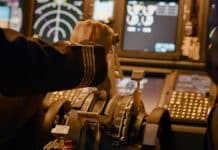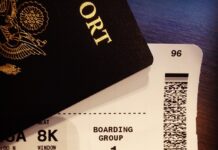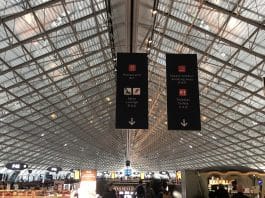You have surely already heard about the airport’s “slots”, if only at the time of the disappearance of Aigle Azur or XL Airways where the only interest of potential buyers was to get their hands on these famous slots.
Behind what looks like a window of opportunity to get a plane off the ground are issues of competitiveness, big money and sometimes even protectionism.
- What is a take-off slot?
- Who allocates the slots?
- What are the criteria for allocating a slot?
- Slot exchange and sale
- Slots, a scarce commodity
- What is the economic impact of a slot
What is a slot?
A slot is the authorization that an airline has to take off or land an aircraft at a given time from or at a given airport.
When we talk about slots, we are generally referring to the take-off slot, even if there are other types (oil slots, catering slots and maintenance slots) which are also very important.
Who allocates the slots?
A slot is allocated for one aeronautical season. There are two aeronautical seasons (also called IATA seasons:
- Winter (5 months), from the last Sunday of October to the last Saturday of March.
- Summer (7 months), from the last Sunday in March to the last Saturday in October.
In each country, slots are allocated by a coordinator (in France, COHOR, the association for the coordination of schedules, which includes the most important airlines and airports). Twice a year, at the beginning of each season for the following season, the airlines and coordinators of the world meet to organize a big market of the slot (logical since a flight implies an airport of departure and arrival).
What are the criteria for allocating slots
Slots are allocated according to various criteria.
Legacy rights
According to the “grandfather rule” an airline keeps its slots from one season to the next provided that 80% of them have been used. Why 80%? To provide a safety margin in case of flight cancellations due to strikes, technical incidents, weather events, etc.
Allocation of available slots
Slots may remain available either because there is not enough demand, because an airline has lost its slots, gone bankrupt, does not reapply for the renewal of all its slots or because the capacity of an airport has been increased.
In this case, half of the available slots are allocated to the airlines present at the airport and half to “new comers” (airlines with less than 5% of the airport’s slots).
In France, the State can decide to pre-empt 20% of the slots to dedicate them to regional services.
Slot exchange and sale
In case of need, airlines can exchange slots. In the European Union these exchanges must be done without financial compensation because the slot is considered a “common good” of the airline is user but not owner. In practice, paid slot exchanges are commonplace in the United Kingdom without the EU having issued any sanctions. But this may change quickly as the EU has the will to liberalize and monetize slot exchanges.
A slot at Heathrow can be sold for up to 40 million pounds (they are logically sold in pairs, because what’s the point of having an aircraft landed if you can’t get it to take off again).
Air France sold a pair of slots there to Oman Air for $75M in 2016, SAS $60M to American Airlines shortly before. Closer to us, Easyjet bought 18 pairs from Thomas Cook at Gatwick and 7 at Bristol for £36m
Easyjet has bought eighteen pairs of daily slots from the now defunct Thomas Cook Airlines at London Gatwick and seven at Bristol, for £36 million.
Slots, a scarce commodity
What makes slots so valuable is their scarcity. Indeed, their number depends on a certain number of criteria such as the airport’s capacity, its number of runways, and environmental constraints (noise for local residents, which restricts take-off and landing times).
Thus, if at some airports there is no difficulty in finding an available slot, the supply being lower than the demand, at other largely saturated airports it is the opposite. There is more demand than supply and the maximum number of slots has already been reached. Without being able to create new slots, it is necessary to fight to recover the existing ones or to wait for an airline to disappear or abandon an airport.
For information, the number of slots is currently limited to 250,000 at Orly and
Economic impact of slots
Apart from their potential asset value, slots are of vital importance for the business and economic performance of an airline.
First of all because there are “good” and “bad” slots. Depending on the slots allocated, the flight schedule will be more or less attractive for passengers, a plane will be able to leave quickly or will be forced to stay on the ground for a long time without making any money, and connections will be more or less difficult to set up.
Secondly, because, not surprisingly, the slot can be a lever for protectionism or negotiation.
Without it being “official”, it happens that the coordinator favors his national airline to prevent competition from developing from a given airport. On the other hand, they are also a powerful bargaining chip, and the French government has been accused of negotiating slots at Roissy for Emirates in exchange for A380 orders. In this particular case, on the one hand, Air France wanted to limit access to its market to the Gulf airlines, while the French government was ready to do (almost) anything to save the A380 program.
To avoid any suspicion of favoritism, La Guardia Airport in New York had to organize a lottery to allocate its slots in the early 2000s.
Lastly, and precisely for reasons of competition, it happens that the merger between two airlines is only validated by the authorities if they give up certain slots because of their dominant position which allows them to lock access to an airport.
The merger between Japan Airlines and Japan Air System in 2004 was only successful because the airlines in question gave back slots at Tokyo Haneda to the competition. And it is likely that Iberia and Air Europa will have to do the same in Madrid soon in order for the takeover of the latter by the former to be validated.
On the other hand, the slot allocation system can lead to counterproductive decisions on the part of the airlines, which, in order not to lose slots due to a lack of use, fly almost empty and unprofitable planes or start routes without much reason to exist simply so as not to lose precious slots.
Photo : plane at take off, by Kichigin via Shutterstock





















